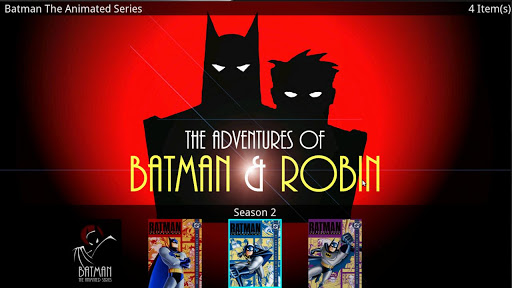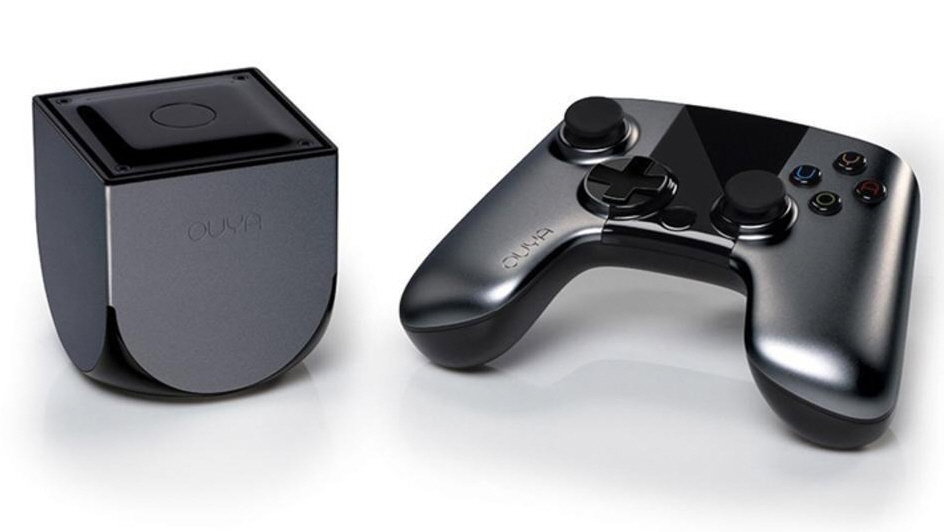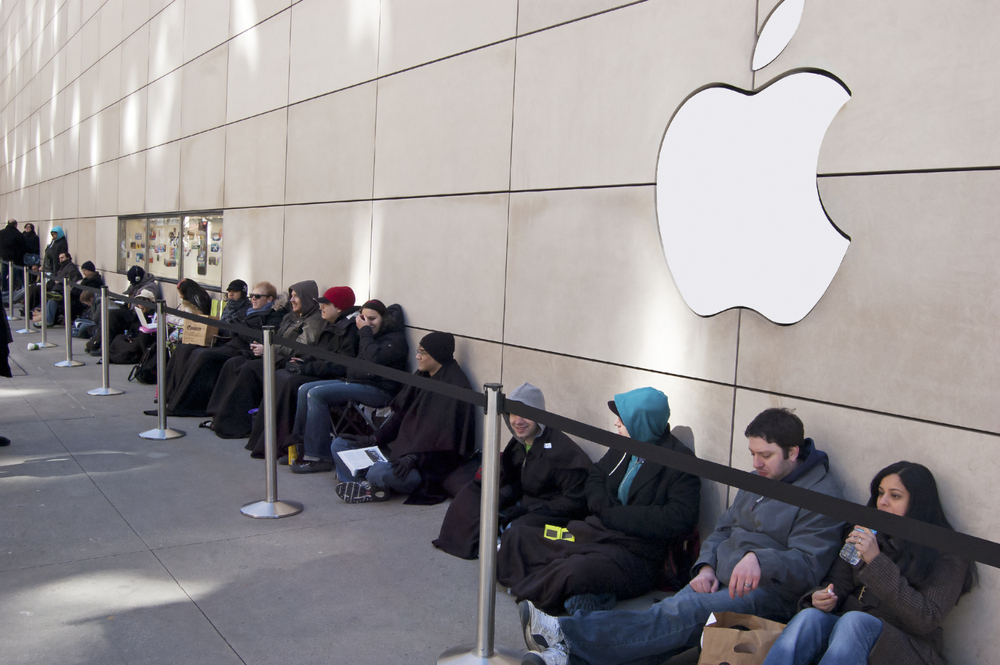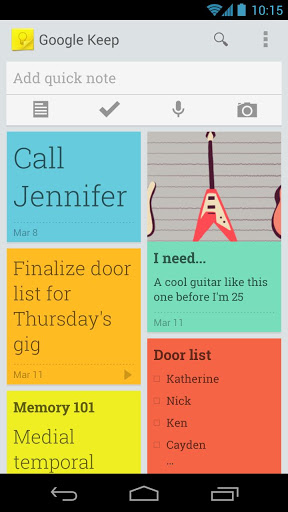
Why I love Raspberry Pi
Sixth in a series. I’ve always admired the concept, execution and possibilities of Raspberry Pi, the British designed and built world-conquering credit card-sized ARM GNU/Linux computer. But despite following the Raspberry Foundation’s every move closely, and frequently promising that I’d buy myself a Pi soon, for some reason I never did.
A year came and went, and although a million Pis were sold in that time, I wasn’t one of the proud purchasers. But after my chat with the lovely Liz Upton, Head of Communications at Raspberry Pi Foundation (and wife of executive director Eben), I realized I had to rectify that mistake. Three weeks ago I finally ordered a Model B Pi, and minutes after powering it up, I knew I was in trouble.

Can social media help reduce the number of accidental fires? Maybe
According to the London Fire Brigade, the number of accidental fires involving young professionals (aged 18-35) in the UK capital has dropped by an average of nearly two a week since the fire service started using social media to deliver fire safety advice.
The Brigade set up its Twitter account and official Facebook page in 2009, and now has over 66,000 followers across both social sites.
Do consumers really want touchscreen PCs? (Because I don't)
I own an iPad, which I love dearly. I use it for lots of things -- games, email, browsing the web, social networking, writing, viewing photos and video, and remote accessing my PC. The iPad, like all tablets, is a true jack of all trades and a master of some too.
But, try as I might, I can’t use it for "real" tasks. While it’s fine for writing small-ish articles on, I could never write a novel on it -- and I’ve tried. For some reason, I just can’t connect with typing on a touchscreen in the same way I do when typing on a proper full-size keyboard. And I could never imagine attempting detailed Photoshop work on a touchscreen either (well, not without a fine stylus at least).

Bring Serenity to Google TV
No, I am not talking of the nerdtastic movie from Joss Whedon, but of an app. I have written twice now of my move from an HTPC to Google TV in the living room, with my most recent post surrounding ways to get both live TV and home media to the tiny set top box. For serving up home media I opted for Plex, which seemed the best solution.
Plex is both a server and app and both are free. Simply install the server software on an always-on computer and control it from a web browser dashboard. From there you can direct it to all of your media -- movies, TV shows, music and photos. It is dead simple to set up and maintain.

Switching from Google to Microsoft, part 3 -- A positive Outlook.com
As someone who switched from Hotmail to Gmail in 2004 and then never looked back, moving to Outlook.com has been quite a weird experience (setting it up was fun in its own right). Some people hate Gmail’s interface, but if you’re used to it, using anything else seems odd.
That said, I’ve adapted to Outlook.com pretty quickly. It feels a bit like going back in time, using an interface similar to the ones I used in the past, but it doesn’t feel dated -- quite the opposite actually -- and I’ve grown to really like it in the short period of time I’ve been using it as my email service.

With its new video calling feature can Vonage Mobile really take on Skype? [Q&A]
On Tuesday, Vonage introduced free video calling into its mobile app for iPhone and Android, rounding out a suite which already offers features like free app-to-app calls, texts, photo and location sharing, as well as international calling.
I chatted to Nick Lazzaro, Vonage’s SVP Product Development, Information Technology and Managing Director Mobile Services, about the new addition, the company’s plans for the future, and what he thinks is next for the mobile industry.

Amazon AutoRip now gives users free MP3 versions of past vinyl purchases
Although it sounds like a slightly late April Fool’s joke, Amazon has today announced it will be giving customers who have purchased vinyl records from Amazon dating back to 1998, free copies in MP3 format.
It forms part of the AutoRip service which automatically adds MP3s of past and present CD purchases to the shopper’s Cloud Player libraries.

The potential success or calamity of Facebook phone
The notion of a Facebook phone has certainly lingered for a few years now -- the concept reached a point of half-hearted fruition in the HTC ChaCha and Salsa in 2011, but neither really embodied the true potential of a Facebook phone. They were much more of "throw and see what sticks" devices -- with the only tangible evidence of deeper Facebook integration being the Facebook button on the devices’ fronts.
Much has changed in nearly two years: Facebook’s Open Graph, the acquisition of Instagram and the introduction of Facebook Camera and Messenger applications, among others. Perhaps the most strident progression Mark Zuckerberg’s social network has made in the past two years is reaching 1 billion active users. And counting. That’s approximately one in seven people in the world, and an even larger proportion if accounting for the developed world alone.

Ouya begins disrupting the gaming console market
The 2012 Kickstarter darling Ouya has been anticipated ever since it skyrocketed past its fund-raising goal and began pre-production. While Sony has released information on its next-generation PlayStation and many people have been talking up the new Xbox, Ouya may have outdone both larger companies in terms of publicity and expectation.
CEO Julie Uhrman announces that "Today we start shipping our early backers their OUYAs. And at our unveiling event this evening, the first of you will get to see OUYA in the flesh (or, metal, as it were)".

Imagine if you could get a drink at the Genius Bar...
Apple has gone to great trouble to craft its stores and reputation. The company refers to its employees as geniuses, for goodness sake! Taking your device in for repair is alluded to as a visit to the "genius bar". It is an entire ecosystem designed to make the customer feel confident and comfortable when dealing with the company. It is also a setup that lends itself to comedy and U.K. hard cider maker Somersby saw that opportunity.
The company has produced a new one-minute TV spot that portrays the Apple Store as a bar that serves up its cider and the geniuses explain why it is so good. The ad does not so much make fun of Apple (that is what Samsung is for), but instead uses the tech company's concept as a basis for some good tongue-in-cheek humor.

Google Translate for Android speaks your language, even while offline
¡Hola! Many of us use Google Translate, some on a daily basis. For instance, I follow a few blogs in Reader (a moment of silence please) that are published in languages that are foreign to me. For the most part it works well, but can also lead to some rather amusing results. Now you can get those same laughs from your Android phone, even when you are offline.
Today Google's product manager Minqi Jiang announces that the search giant and mobile operating system developer is "launching offline language packages for Google Translate on Android (2.3 and above) with support for 50 languages, from French and Spanish to Chinese and Arabic".

Post-PC era is REAL for U.S. Apple users
Today, comScore started a new service that ranks the top U.S. websites by desktop and mobile views -- the latter is a new measurement. Some of them really pop off the chart, with Apple glaring among traditional companies. More than one-third of unique visitors in February accessed the site via mobile device-only. That compares to 5 percent for Microsoft properties. Analysts, bloggers and journalists often portray the fruit-logo company as best representative of the so-called Post-PC era, and Windows' maker the epoch in decline.
The numbers aren't shocking, if you think about them. Windows has little presence on smartphones or tablets. Microsoft mobile OS smartphones share was just 3 percent during fourth quarter, according to Gartner. IDC forecasts Windows tablet market share, based on unit shipments, will be less than 5 percent this year. By comparison, iOS has greater reach, with, according to the company, cumulative shipments exceeding 500 million. Hell, Apple sold 43.5 million iPhones just in Q4, according to Gartner.

Overhauling a home network, part 5 -- Back to the future
With last week's installment, this little series largely came to an end for now, but it doesn't mean that I am not actively planning for future improvements to the digital lifestyle in our home. In fact, my list of ideas for improvements is a rather lengthy one, though the expenses are enough for now and I have no desire to incur the wrath of my wife with more deliveries showing up on our doorstep.
But, where exactly do I want to go from here? The ideas are endless, but for the sake of brevity I will list only a few here. These are the ones I have prioritized at the top of that future list. The ones I consider most important to make everything work quicker and more smoothly.

I'm puzzled by Chrome World Wide Maze
You'll never guess what you gave up Google Reader for? The tried-and-true makes way for a few, ah, experiments. Newest: Chrome World Wide Maze. Geekdom is abuzz about the oddity this evening. I'm simply baffled, although I see the benefits as a technology preview, which surely must be the point.
Essentially your mobile device running Chrome becomes a remote control for a 3D-maze makeover of any website. I couldn't help myself. I chose bing.com. The setup is a bit convoluted, using -- and therefore showcasing -- tab sync. The process involves opening the site from tabs already available on the other device and completing a handshake using a six-digit number. Then the fun begins, or would have if Chrome Beta for Android hadn't crashed and disconnected while my wife took photos. (Hey, every story needs art.)

Google Keep -- for notes, memos and ideas best kept in the cloud
Confession: I've never used Evernote, much to the abash of colleague Alan Buckingham (or so he expressed in group chat a little while ago). But I would use Google Keep, which released today. Russell Holly calls Keep "the not-quite Evernote clone" -- for anyone making bold comparisons.
You tell me. Does this sound familiar, Evernote and OneNote users? "With Keep you can quickly jot ideas down when you think of them and even include checklists and photos to keep track of what’s important to you", Katherine Kuan, Google software engineer, says. "Your notes are safely stored in Google Drive and synced to all your devices so you can always have them at hand". She adds: "If it’s more convenient to speak than to type that’s fine -- Keep transcribes voice memos for you automatically. There’s super-fast search to find what you’re looking for and when you’re finished with a note you can archive or delete it".
